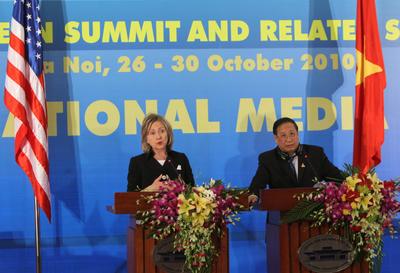The event will also mark the addition of two new members, the US and Russia to EAS.
Although the US is not geographically an East Asian nation, it remains an essential element of East Asia’s political environment, necessary to the East Asian community building process, the Summit’s paramount goal. Russia — currently the world’s largest oil producer, partly bordered by North Korea, Japan and China — is of geopolitical importance to East Asia, especially with regard to energy security. This is exemplified by the 1 January 2011 opening of the Eastern Siberia Pacific Ocean (ESPO) oil pipeline, exporting Russian crude oil to the Asia Pacific markets (Japan, China and South Korea).
In the context of a world trying to devise a new global order following the 2008 Global Financial Crisis, the EAS is in the midst of an evolving and increasingly convoluted regional and global architecture.
It is therefore imperative that this year’s EAS agenda be strategically sound, an objective complicated by conflicting interests across the region. For example, while the US wants nothing less than to bring hard security issues to the table — including free navigation and the avoidance of hegemonic dominance over the South China Sea — China will do anything to avoid this. Bipolar dominance of the agenda by the US and China should be avoided. (And Premier Wen Jiabao, in his recent visit to Indonesia, reiterated that ASEAN should remain in the driver’s seat.) There are also regional challenges that need to be contained: the Thai-Cambodia dispute, the Korean Peninsula, maritime issues, terrorism, piracy, transnational crime, pandemics and natural disasters.
The old functional agenda from the previous Summits — including education, finance, energy, disaster management and the prevention of avian flu — will also continue as there are existing mechanisms in place. Two new agenda items are likely to be added to this: connectivity, which is lobbied by China, and a dynamic relationship between traditional and non-traditional security, lobbied by the US.
These new agenda items are good developments with broad visions.
Connectivity, first of all, is consistent with the Master Plan of ASEAN Connectivity. Physical connectivity is imperative to connect ASEAN with China (and Northeast Asia more generally) and to build an integrated East Asian community. The plan includes the construction of the Singapore–Kunming rail link that may be extended as far as the city of Surabaya in East Java. The ASEAN Connectivity agenda will also include institutional and people-to-people connectivity, including regulatory reforms and education. Secondly, given the ongoing territorial disputes and other non-traditional security issues such as piracy in the Indian Ocean, the interplay of traditional and non-traditional security is a timely and pending issue.
As the host of EAS 2011, Indonesia supports the inclusion of geopolitical security issues. To what extent this is politically feasible is still a question, but it is likely that the EAS’s security agenda may overlap with that of the ASEAN Defence Ministerial Meeting Plus (ADMM+). These include humanitarian assistance and disaster relief, peace keeping operations, maritime security, military medicine and counter-terrorism.
At the conclusion of the 2011 ASEAN Summit, ASEAN leaders reiterated the importance of the 2002 Declaration Of Conduct and the 1982 UN Convention on the Law of the Sea as a means to peaceful dispute resolution. Enacting a regional code of conduct for South China Sea border disputes, and pressuring the US to ratify the 1982 UN Convention on the Law of the Sea, which the US has signed, will be more challenging issues. Still, EAS should strengthen the commitment on the Treaty of Amity and Cooperation signed by all EAS members.
The inclusion of the new members also provides an invaluable opportunity to hold policy dialogues on energy security. Asia’s surging demand for energy may create rivalries for energy resources instead of cooperation. From the Sino–Japan contest over oil and gas reserves in the East China Sea over the past decade, to Chinese activism in the Indian Ocean leading to India’s anxiety, EAS leaders must seek paths to cooperation and find a win-win solution. With Russia as the largest oil producer and China as the largest oil consumer, the EAS could facilitate a discussion on energy prices. On top of this, Japan’s nuclear crisis adds to the importance of holding dialogue on nuclear security.
The Thai-Cambodia dispute also presents considerable challenges to the foundations of the EAS. Indonesia should act softly and slowly but decisively. Instead of making a great leap forward, Deng Xiaoping’s advice might be prudent here: ‘cross the river by feeling for stones’ — mutual trust can only be earned and not given and the first expanded EAS will be judged by its success in building trust in new areas of dialogue more than any immediate or concrete outcomes.
Maria Monica Wihardja is a researcher at the Centre for Strategic and International Studies, Jakarta, and a lecturer at the Department of Economics, University of Indonesia. A version of the article will be published in The Jakarta Post.

